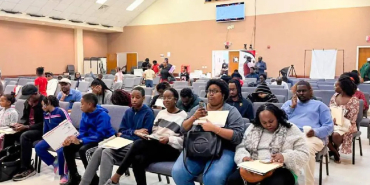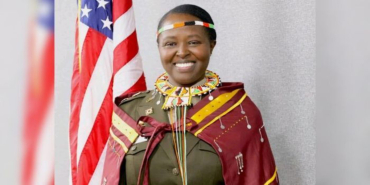Kenyan Diaspora in the Netherlands Balances Opportunity with Cultural Adjustment

A growing number of Kenyan professionals and students are building careers and academic paths in the Netherlands, drawn by scholarship programmes and international opportunities, but facing challenges in adapting to Dutch culture and daily life.
Annabel Nyole, a 28-year-old urban planner, moved to the Netherlands in 2023 under the Orange Knowledge Programme, a bilateral initiative between Kenya and the Dutch government. She chose to study in Groningen, a city where more than half of daily journeys are made by bicycle.
“I was more fascinated by the people on bikes than the buildings,” Nyole said, describing how cycling culture shaped her understanding of urban infrastructure.
Coming from Nairobi’s dense and often disorganised cityscape, she was struck by the Netherlands’ highly structured approach to space, transport, and water management. These experiences have reinforced her ambition to return to Kenya and apply lessons from Dutch planning models.
While professional growth has been significant, integration has not been easy. Nyole recalled early struggles, such as navigating escalators at Schiphol Airport and adjusting to the simplicity of Dutch meals and the informal dress codes in the workplace. Weather and cultural visibility also posed difficulties.
“At conferences, I was sometimes the only Black person in the room. But I reminded myself why I was there,” she said.
Chris Ochieng, a former clinical officer from Kisii, offers a different perspective. He moved to the Netherlands in 2009 to study international business and now works in banking in Breda. A Dutch citizen, Ochieng speaks both Dutch and English fluently, but learning the language was one of his biggest challenges.
“You’re in a room full of laughter and conversation, and you don’t understand a word,” he said.
Over time, Ochieng adapted to Dutch norms, describing the society as more reserved and formal than Kenya’s. He found support through friendships with other international students and now serves as chairperson of the Kenyan Diaspora in the Netherlands.
Through his role, he helps new arrivals settle in, organises national celebrations, and mentors younger Kenyans. Despite his long stay and stable life in the Netherlands, he still plans to return to Kenya in the future. In Deventer, 27-year-old Carolyne Atieno is balancing studies and entrepreneurship.
She arrived as an au pair in 2023 and is now pursuing a Master’s degree in Facilities and Real Estate Management. A graduate of JKUAT, she was initially unprepared for the realities of Dutch life, from unexpected autumn weather to cultural norms.
She found the Dutch communication style to be particularly direct.
“There’s no sugar-coating. They tell it like it is,” she said. Social customs, such as minimalist meals, also took time to understand. In response to her own experiences, Atieno launched Rafiki.org, a platform that helps international residents connect, travel, and learn about Dutch culture. The service also offers Dutch language support.
Though their experiences differ, Nyole, Ochieng, and Atieno share common goals: professional development, cultural adaptation, and a desire to contribute to Kenya’s future. They note the high cost of living in the Netherlands, student accommodation ranges from Sh92,000 to Sh121,000, and groceries are significantly more expensive than in Kenya, but they also value the safety, structure, and quality of life.








Add new comment